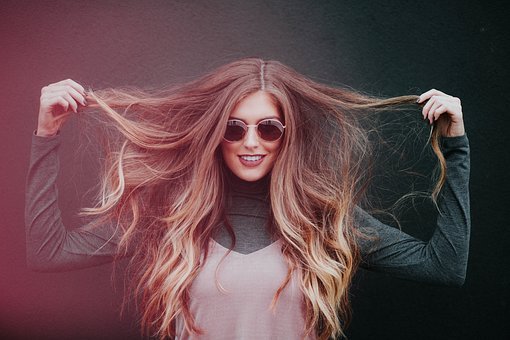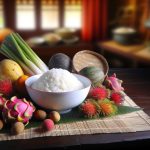Frizzy hair, dandruff, dry and oily hair. The problems men and women face are usually the same. This article provides answers to the most frequently asked questions about hair.
1. How do I get rid of dandruff and flakiness naturally?
Coconut oil. I’ve had a lot of success convincing friends and family to try using coconut oil. If you have dandruff that is hard to get rid of, try a combination of 2 tablespoons of coconut oil and 4 to 5 drops of tea tree or neem oil.
The key is to apply the coconut oil or mixture to your scalp and leave it on for as many hours as possible. Leave it on overnight, if possible.
If you don’t use shampoo and have a problem with flakiness, do a coconut oil treatment and wash with a non-detergent shampoo as a special treatment, then rinse with a solution of water and lemon juice.
Coconut oil can relieve an itchy scalp that doesn’t have flakes. Coconut oil is hard at room temperature. Heat it in your microwave till it becomes liquid (it liquefies quickly). Poor this warm oil on your scalp and massage in. Leave for at least 30 minutes, the longer the better, than wash with shampoo as usual. Your itchiness will improve.
If you have dandruff that doesn’t go away and pink, scaly areas on your scalp, you could have psoriasis, which is not uncommon.
2. How can I make my hair grow faster/longer/thicker?
If you are experiencing hair thinning or halted hair growth, the first step is to examine your diet. Are you getting enough fatty acids? Cod liver oil is a nutrient-dense oil that can help improve overall health.
Could you be anemic? You should make sure you have plenty of protein and minerals in your diet, especially iron. (Although, remember postmenopausal women, you shouldn’t over-supplement with iron.)
Give yourself a scalp massage every day. This increases blood flow and encourages the follicle to produce more hair. For an extra effective massage, mix jojoba/castor oil with cayenne pepper/chamomile.
Sally Freeman’s Ageless Natural Beauty book has this hair recipe:
- 1 pint vodka
- 3 oz cayenne pepper
- 3 oz dried nettle
- 1 oz dried chamomile
In a glass jar, mix the cayenne, nettle and chamomile with the vodka. Shake well. Store in a cool, dark place for 2 weeks, and shake it every day. Pour the vodka into a strainer to remove the solids. Apply the vodka to your scalp vigorously every day.
Use alcohol on your scalp sparingly as it can dry your scalp out. Keep your scalp moisturized to avoid this.
Others have tried with success to stop all man-made chemicals from their hair products you may see positive results within a few months.
Rosemary, lavender, cedarwood essential oils mixed with a carrier oil and massaged into the skin is said to have many benefits. I have used BioOil with good luck. I use shampoo bars that contain apple cider vinegar, and rinsing my hair with them really helped to kick-start my hair growth.
3. What is frizz?
Hair frizz is when your hair looks dry, puffy, or spiked. Flyaways are the little hairs that stick out perpendicular to the hair shaft.
The way your hair looks can be affected by the type of hair you have. It is important to note that all hair types can experience frizz.
4. What causes frizz?
The protein structure of hair is held together by hydrogen bonds. When these bonds are broken, the cuticles of the hair lift up, causing frizz.
In a humid environment, moisture penetrates the hair shaft and is absorbed into the cortex causing the proteins there to swell. The different types of proteins swelling at different rates causes the hair shaft to twist and bend in an irregular pattern. Resulting in, you guessed it, frizz!
Many hair problems can be solved by identifying and correcting the root cause, rather than just treating the symptoms.
Before you buy products to get rid of frizz, you should figure out what is causing it.
Frizz is caused by many factors:
- High humidity levels (humidity is the amount of water vapor in the air).
- Genetics
- Change in season or weather conditions.
- Dryness and damage to hair from heat styling tools like curling irons and flat irons. The more damaged your strands are, the frizzier they will be.
- Too much humectants.
- Using products that are not sulfate-free.
- Product build-up of polymers, cationics, and silicone, or using too much product at once.
- Not hydrating your hair enough with conditioner.
- Over-washing your hair
- Excessive sun exposure.
- Sweat, which contains a small amount of salt will pull moisture from your hair if you allow it to sit in your curls for too long after a workout, resulting in dehydration and frizz.
- Frequent use of protein treatments.
- Harsh chemicals resulting in protein loss and hair’s mechanical strength (i.e. bleach, hair dyes)
- Drying ingredients like alcohol
- Swimming in chlorinated pools can also lead to frizz because of damage to the cuticle.
- Hard water
- Split ends
- Not using a hair cuticle sealing product
- The way you take care of your hair may also cause frizzy curls; such habits include: skipping conditioner, which leads to dryness, rubbing your hair dry with a cotton towel, hand in hair syndrome, using the wrong styling tools (which can cause friction and roughen up the cuticles), brushing curls when dry, and cotton pillowcases
- Underlying health issues might alter the texture, density, and manner in which your hair behaves.
- Dehydration – Your hair, much like your skin, benefits from internal moisturization, so make sure to drink lots of water
- Hormonal fluctuations
- Age
5. How can I prevent frizzy curly hair?
There is no one-time solution for frizzy hair. You can use products to help with preventing or reducing frizz.
You will need to experiment to figure out what works best for you, as everyone’s hair and lifestyle are different. I always say that you should let your hair be your guide.
There are some things that you can do to minimize frizz and keep your curls looking their best:
- Try using a conditioning mask (or deep conditioner) to keep your hair strengthened and moisturized.
- Use a leave-in conditioner after you wash your hair. A leave-in conditioner helps reduce frizz by sealing in the moisture.
- When possible try letting your hair air dry instead of blow-drying it; this will help reduce the appearance of frizz.
- Try sleeping on a silk or satin pillowcase to prevent frizz while you sleep. When you sleep on a cotton pillowcase, the fabric rubs against your hair, causing friction. Friction can cause frizz and breakage. Cotton pillowcases are prone to absorb the oils from your hair, leaving them dried, brittle, and vulnerable to breakage.
- Use a hydrating shampoo, conditioner, or co-wash that works for your specific curl type to help add moisture to your hair.
- Make sure your products are free of harsh sulfates because these ingredients tend to fade color treatments which can leave your hair dry and frizzy. Look for shampoos and conditioners that contain gentle cleansing agents such as cocamidopropyl betaine or decyl glucoside. If you have color-treated hair, make sure to use a shampoo and conditioner that are designed for color-treated hair.
- Use a clarifying shampoo, use it once a month (or as needed) to remove product build-up and residue from your hair. This will help products to work better and give you the best results.
- Avoid using products with drying alcohol, as these can cause your hair to become dehydrated and increase the likelihood of frizz. Examples of drying alcohol are ethanol, isopropyl alcohol, and SD alcohol.
- If you ever use a heat styling tool, use a heat protectant on your hair to protect it from damage. Try the Kenra Platinum Hot Spray.
- Avoid rubbing your hair with a towel after you shower; instead, blot it dry with a microfiber towel or let it air dry.
- Invest in good hair styling tools. Replace worn-out tools. A good hairdryer can make a big difference in the quality of your style. Choose a brush that works best for your curl type.
- If what you’re currently doing isn’t working, be open to trying something new. Keep an open mind about anything from a new product, tool, or styling technique. With curly hair, it’s important to experiment and find what works best for you!
- If you’ve tried everything and still not getting results, reach out to a professional curly hairstylist for help.
6. Is there any natural way to get rid of gray?
I’m always happy to answer this question because it’s something I constantly struggle with myself. I can’t decide whether to try to color my hair to cover the gray hairs that keep popping up, or if I should just accept them and age gracefully.
Various suggestions to help combat gray include:
- Rinse your hair daily with an infusion of 2 c. apple cider vinegar and 1/2 c. rosemary (store this in a jar for a week and then strain the rosemary out). Dilute it with water each time you use it – about 3 tbsp ACV and 3 c. water. Supposedly, long-term use of rosemary on darker hair helps darken the gray so it blends in better.
- Drink sage tea daily.
- The Chinese herb called He Shou Wu is known to turn gray hair black. In fact, one day I was chatting with a local herbalist, when a much older woman with gorgeous, thick black tresses walked in and purchased something. After she left, my herbalist friend said, “You know, three years ago that woman came in here with the grayest hair you’ve ever seen. All she’s done is He Shou Wu, and it’s raven now.” Crazy. She also went on, though, to mention that if you take too much He Shou Wu, you could potentially damage your liver – so don’t over do it.
- I’ve heard differing stories about the effectiveness of (regular red) henna or its colorful variants in covering gray hair. When I dyed my hair with the indigo “henna,” it did nothing for my grays. But other people have much different reports. : )
7. My hair is so oily! What can I do about this?
Ah, I know this problem all too well.
You can get rid of oiliness by using a dry shampoo when I haven’t washed my hair in a few days. If your hair is extra thick or curly, dry shampoo may not be effective. If you have straight or fine hair, this is the best option.
Only wash your hair twice a week and I don’t use shampoo that often. This has helped make my hair less oily. This seems counter intuitive but for some people less washing works.
When I don’t have time to shampoo, I mix a solution of apple cider vinegar, rosemary essential oil, and water to use as a makeshift rinse. Works like a shiny, healthy charm! The rosemary/vinegar rinse helps cleanse some of the oil from my hair as well as balances the pH to its proper levels.
- The first one would be using white kaolin cosmetic clay to wash your hair, just make a paste with green tea and massage it in the shower and rinse with the rest of green tea. Both ( green tea and clay) will help to deal with oily hair.
- The second one is to use powdered mustard with green tea. Make sure to use no more than one spoon of mustard and about one cup of tea. Use it carefully because it can burn if not diluted enough. Rinse with green tea. It is an old recipe from my grandma and it really works!
- The third one is my favorite. Take one egg and use egg-white. Just beat it to the beautiful foam and add one drop of rosemary EO to make it smell wonderful and help to balance oil glands on your scalp naturally. Massage and rinse with lukewarm water. BTW, never use hot water on your hair if you want to have a truly beautiful mane.
READ MORE: Causes of Hair Loss









